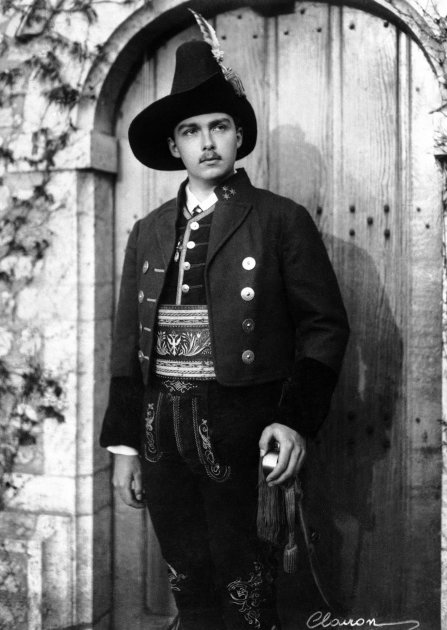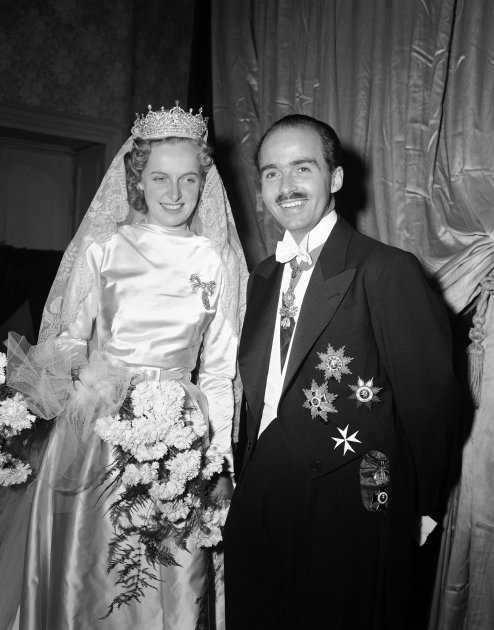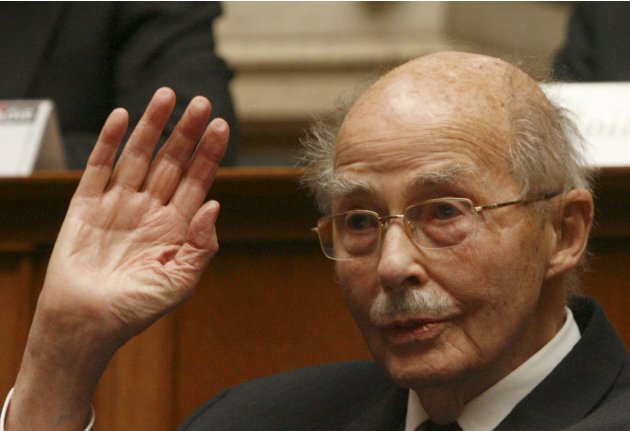
VIENNA (Reuters) - Otto Habsburg-Lothringen, the eldest son of the last Austrian emperor who became a champion of European unity, died aged 98 at his home in Germany on Monday, his family said.
"He died peacefully with his family present," a man who identified himself as a grandson said by telephone from Poecking, on Lake Starnberg in southern Germany, where Habsburg had lived since 1954 during a life spent mostly in exile.
From there he honed a vision of overcoming the Cold War divide of Europe and worked to make it happen.
Born in 1912, the man also known as Archduke Otto von Habsburg became head of the imperial House of Habsburg on the death of his father, Charles, in 1922.

The Habsburgs were the ruling family of the Austro-Hungarian empire, which collapsed at the end of World War One.
Austria abolished the monarchy and seized Habsburg property in 1919, weeks after the family fled to Switzerland.
Habsburg also lived in Portugal, Spain, Belgium, France and the United States before settling in Bavaria.
He made a name for himself as a member of the European Parliament for the German state of Bavaria for two decades and lectured throughout the world on international affairs.
Habsburg officially relinquished his claim to the throne in 1961 and was allowed to return to post-war Austria only in 1966 after years of political and legal jousting.

It was he who spawned the joke in which an aide asks if he had seen the Austria-Hungary football match the night before.
The deadpan reply: "No, whom were we playing?"
IMPERIAL CRYPT
An opponent of the Nazis who criticized Germany's annexation of Austria in 1938, Habsburg joined the Paneuropean Union movement and took up the cause of former subjects in eastern Europe oppressed during communist rule.
He helped arrange a "Pan-European Picnic" on the Austro-Hungarian border in 1989 which led to a brief opening of the Iron Curtain dividing capitalist West from communist eastern Europe, fostering the movement that would lead to the fall of the Berlin Wall a few months later.
"He has done a lot for the country during the regime change and he had a role in opening the borders," said Budapest IT specialist Katalin Antal, 43, a rare Hungarian monarchist.

"Frankly, I'm a royalist. He would have made a good king. I love democracy, the form we can see in Britain, and I would have been happy if Hungary again becomes a kingdom," she said.
Habsburg withdrew from public life after his wife, Princess Regina von Sachsen-Meiningen, died last year. They had seven children.
His coffin will remain for three days in a church in Poecking, followed by requiem services in Munich, Vienna, Budapest and elsewhere, his website said. http://www.ottovonhabsburg.org
He is expected to be buried at the imperial crypt in Vienna, where dozens of his ancestors lie, after a funeral at St. Stephen's cathedral on July 16, Cardinal Christoph Schoenborn told the Kathpress news agency.
The Habsburgs sometimes bury the hearts of their dead separately. A spokeswoman for the family secretariat in Hungary said his heart would interred in the Abbey of Pannonhalma, in western Hungary.
Former Austrian Chancellor Wolfgang Schuessel called him "a great Austrian patriot" who "incorporated pan-European thinking like no other and articulated this already at a time when a dark shadow hung over the continent."
European Commission President Manuel Barroso hailed him as "a great European...who gave an important impetus to the European project throughout his rich life."
(Additional reporting by Angelika Gruber in Vienna and by Sandor Peto and Marton Dunai in Budapest; Editing by Jon Boyle)

No comments:
Post a Comment